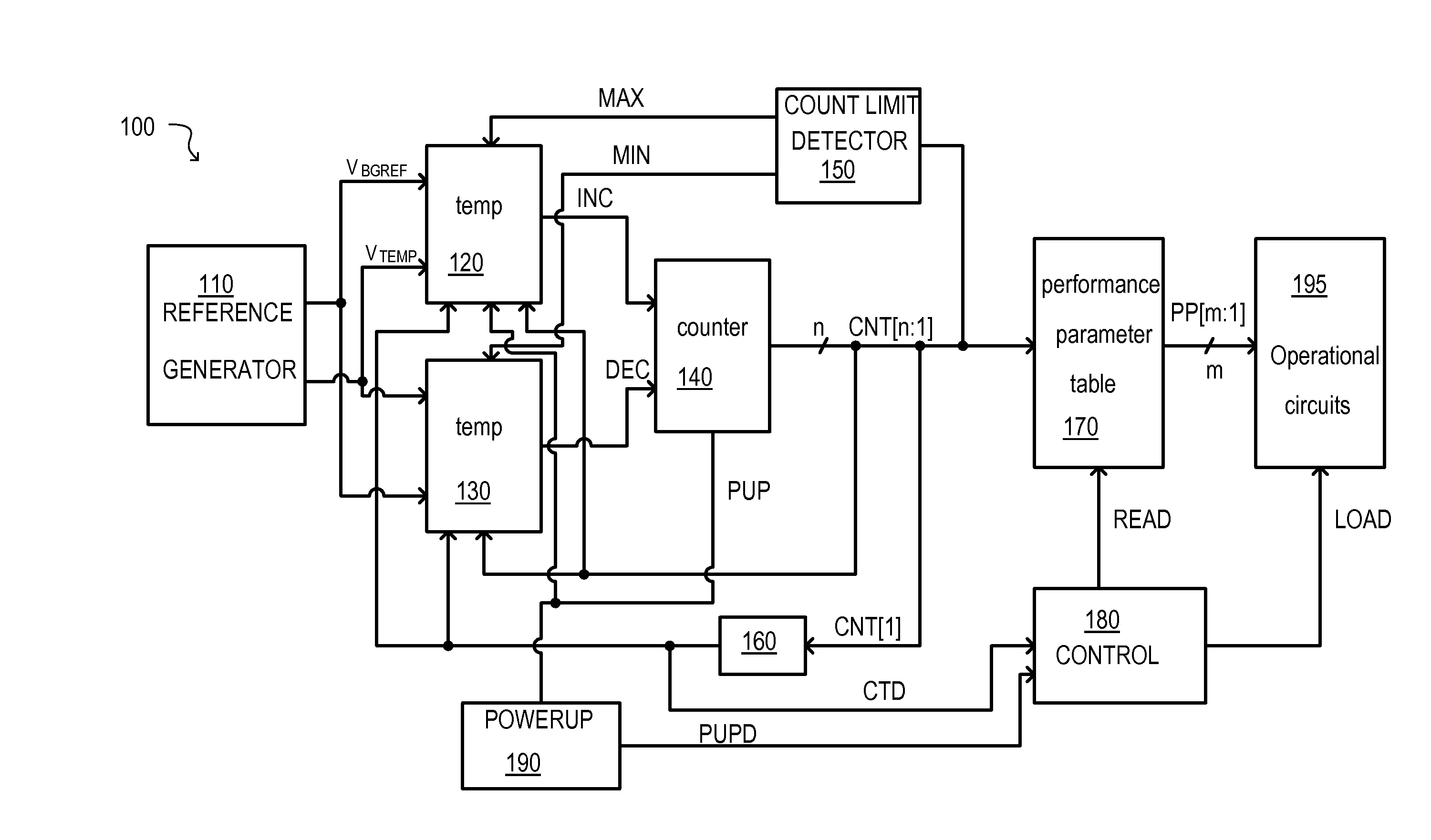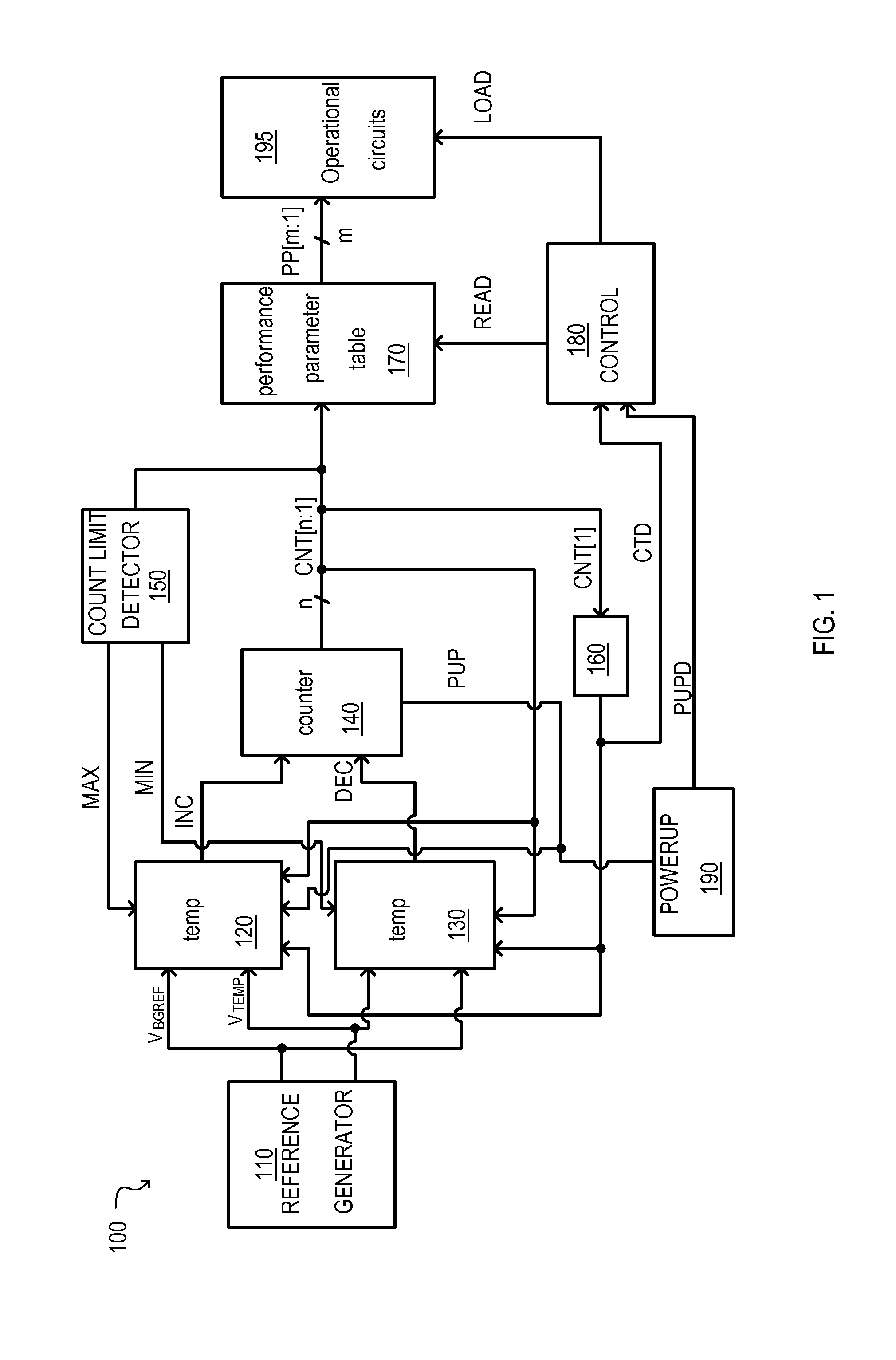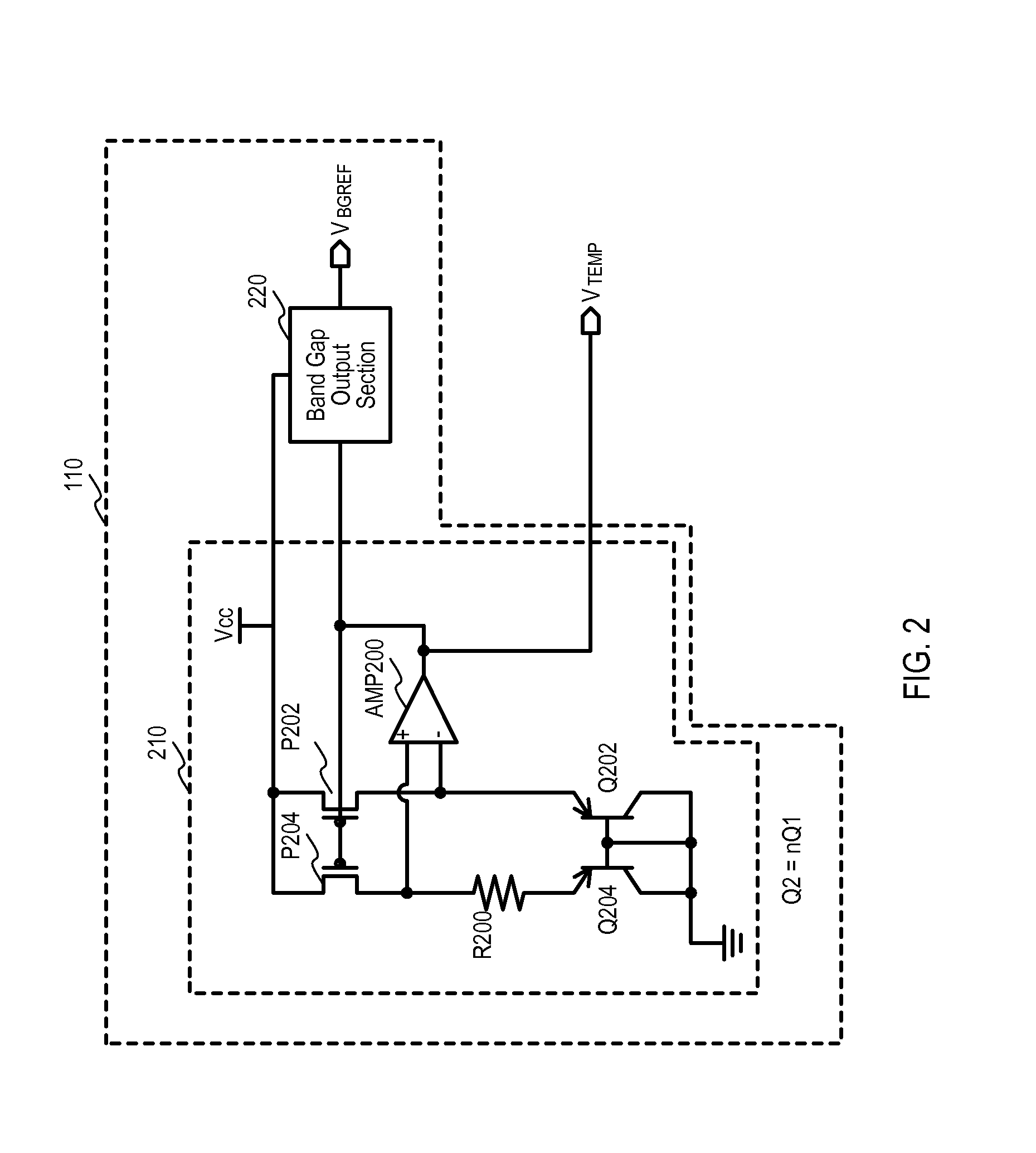Semiconductor device having temperature sensor circuit that detects a temperature range upper limit value and a temperature range lower limit value
a technology of temperature sensor and semiconductor device, which is applied in the direction of heat measurement, pulse technique, instruments, etc., can solve the problems of increased leakage current, reduced drive current, and design problems
- Summary
- Abstract
- Description
- Claims
- Application Information
AI Technical Summary
Benefits of technology
Problems solved by technology
Method used
Image
Examples
Embodiment Construction
[0035]According to the embodiments set forth below, a semiconductor device can include a temperature sensing circuit. The temperature sensing circuits can include at least one variable resistor that can set a temperature range. A counter may incrementally change in accordance with a temperature of the semiconductor device changing outside of the bounds of the range. The resistance value of the at least one variable resistor can change in response to the count output of the counter such that the temperature range can change. Furthermore, the value of the counter may select parameters stored in a table to set performance parameters of various operational circuits. In this way, functionality of the semiconductor device may be assured over a large temperature range without wasting power and / or degrading performance unnecessarily.
[0036]Referring now to FIG. 1, a semiconductor device according to an embodiment is set forth in a block schematic diagram and given the general reference chara...
PUM
 Login to View More
Login to View More Abstract
Description
Claims
Application Information
 Login to View More
Login to View More - R&D
- Intellectual Property
- Life Sciences
- Materials
- Tech Scout
- Unparalleled Data Quality
- Higher Quality Content
- 60% Fewer Hallucinations
Browse by: Latest US Patents, China's latest patents, Technical Efficacy Thesaurus, Application Domain, Technology Topic, Popular Technical Reports.
© 2025 PatSnap. All rights reserved.Legal|Privacy policy|Modern Slavery Act Transparency Statement|Sitemap|About US| Contact US: help@patsnap.com



